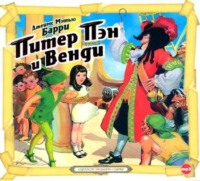 полная версия
полная версияA Widow's Tale, and Other Stories
"Lord bless my soul! ane of the disbanded Greys!" cried Marjory, lifting up her hands and eyes. "Oh, lassie, lassie! will ye never learn?"
"My heart was in my mouth," said Jean, whose eyes were dancing, however, with excitement and triumph, "but I had to keep up my courage. I gave the pony just a touch to speed her on – and you know she cannot thole even a touch, she has such a spirit. And then there came a muckle voice, as muckle as the man, calling to me, Hey, my bonnie lass! and hey, my bonnie bird! The cannaillye! to use such words to me!"
Jean's eyes shone with a momentary gleam of rage and shame. "It is maybe my fault," she said, "as ye are always telling me, to ride alone; but who would I get to come behind? No Maister Morison, the major-domo, nor Jamie Webster, that is everybody's man, nor Jaicque the groom. No, no; there's nobody to follow Jean: so I must either bide in the house or ride my lane."
"My darlin'! and what did he do?"
"Oh, no harm," cried the girl, laughing, "since here I am, and none the worse but for the lace on my cape, that he gave a snatch at as he came up thundering, till I thought it was a real charge of cavalry, and I would be ridden down."
"Lassie! and how did ye escape? For gude sake dinna keep me in my trouble."
"There is no need for trouble," said Jean, "since here you see me: though I allow," she added, with a pleasure in working upon the old lady's fears, "that a minute longer and I cannot tell what I would have done; for he had gripped my cape in his hand, though the pony was just flying, and the muckle grey horse thundering, and my heart bursting out of my throat with fright and fury." She paused, half from the keenness of the recollection and half maliciously, to pile up the agony.
"And then? and then?"
"Then?" said Jean, looking innocently into her old nurse's face. "Why, then! there was just nothing more."
"Oh, bairn! you are enough to drive ten women out of their senses."
"Well," said Jean, "I will admit there were causes for it. But just at that moment there came another galloping, just as muckle a horse and as muckle a man, on the other side. And my man he dropped hold of my cape, and tore the lace off it with his glove, as you see. And the pony, she just set her feet to the ground as if she were riding a race, and the new man and my man they faced each other. I'm thinking nothing happened. I saw with that eye I have in the back of my head that they rode up to each other awfu' civil, like two towers; and then the trooper he took the turn to St Monance, and me I flew up the Carnbee road, and the grand adventure was done. You can see I'm not a prin the worse, except my riding-cape, and Kirsten must just sew on the lace again."
"And that was a'!" cried Mistress Marjory, relieved, but at the same time a little disappointed to hear no more.
"All! was it not enough?" said Jean; "would you have had me assaulted on the king's highway, and put in peril of my purse, that has nothing in it, or maybe of my life, which has not very much – " Jean made a pause, and then, looking up demurely, she said in very quiet tones, "No; it was not all."
"Oh, my hinny, – you just play upon me as if I were a fiddle."
"You are much more like a harpsichord," said Jean, contemplating the housekeeper's ample person reflectively. "Yon man after he had dispersed the trooper never came rushing up as Roland Dishington or one of the Ansters would have done, but just rode steady behind as if he had been my servant." The word has or had two meanings, and probably the second of these flashed over her memory, for she made an almost imperceptible pause and reddened. "I was still a little feared: and what did I do but head the pony for yon house you know, of Over-Kellie, where you never would let me go – "
"And then?" cried Mistress Marjory again, breathless.
"Well, they came fleeing out, and he, he came riding in. And it was who would be the most concerned, and was I hurt and was I frightened, and would I bide and rest? The Leddy – or is she the Gudewife? – for I could not tell – "
"Some calls her the one and some the other," said Marjory, shortly. "Never you mind. You'll be telling me now the man that came up and – saved ye was – "
"That is just it," said Jean, "and if you'll tell nobody, Marjory, I'll just whisper in your ear – he's a bonnie lad."
"Mistress Jean!" cried the housekeeper in consternation.
"Well! say he's just a country fellow, and no grand cock to his hat, nor lace on his coat: I am not saying he's a grand gentleman. But I have a pair of sharp eyes in my head, – you are always saying that, – and I cannot but see what's set before them. He is a bonnie lad; and that is just as true as all the rest."
"What do you call a' the rest?"
"You know as well as I do; or maybe you know better," said Jean, with a little indignation; "because he is Peter Oliphant, and because he is the next of kin, that's not to say that he is not a bonnie lad!"
"It might be a good reason, Mistress Jean, for you kenning naething about him, and no going out of your way to make acquaintance with him – "
"Me go out of my way to make acquaintance with him! Neither him nor any man, if it were a prince or a king! It was he that came out of his way to protect a lass he knew nothing of when he saw she was in need. Maybe you would have thought it better had he left me to the trooper?" said the girl, with much indignation.
"Oh, no that, no that," said the old woman; "but it would have been better you had not put yourself in the way of wanting protection, my bonnie leddy – no from him nor from any man!" she said.
"You forget who you are speaking to," cried Mistress Jean, with quick anger, flinging away. But she came back next minute to fling her arms round her old nurse's neck. "And that's true," she said; "I was just thinking so mysel'."
CHAPTER II
While this was going on, Sir Walter was sitting in his warm panelled chamber, pondering by the side of the fire. His old Castle, which was not one of the famous strongholds of the time, but yet an ancient house dating far back into the mist of ages, and standing four-square to all the winds that blew, a house that time could scarcely wear more than the rocks, would soon be a desolate and masterless house. Since the days of Bruce the Oliphants had been there, and the first lord of Kellie had good King Robert's blood in his veins. But now there was no one to come after him in the old home of his race. The gloom of that consciousness had settled down upon his mind, and filled him with an immense and indescribable darkness in which he went tottering, seeking for something to replace what was lost, though by moments he was not very clear as to what it was that was lost, which made it necessary for him to grope in the dark and seek that substitute. And his thoughts were very slow, wandering, and confused, though they always came back with unbroken persistency to the one point. Who should have Kellie after him? Who would replace the heirs who were no more? This had been the preoccupation of many years; it almost seemed as if all his life he had been thinking of it. His own active days had vanished away, and all the adventures and troubles that had filled his house with rejoicing and with wailing. Sometimes while he sat musing on that one sole question he would be surprised by a recollection of himself, as in the days when he rode in Queen Mary's train, or those in which he hung about the ante-chambers at St James's, half proud to feel himself one of the new masters there, half furious to see the dark looks which the Southern lords threw upon King James's train. Was that himself? or one of the former Oliphants who held a larger train at Kellie? or perhaps one of the young ones – the lads, the – , those who ought to have been here to receive Kellie from his hands. Their faces would sometimes flash out from his memory too. Who were they, old heirs of Kellie slain in the wars, or lost in the wildering world, never coming back to claim their heritage? And who was to have it now? Who would keep it safe, and guard all its rights and keep up the auld name? On this subject his thoughts would clear, his mind retained its force. It was the one clear point in the misty universe of dreams that surrounded the old man.
Almost his only visitors were the clergymen of the two neighbouring parishes, each of which claimed Kellie Castle as part of its own. He retained enough of his natural keenness to perceive that each of them took a different side in this great question, and sometimes to play upon their contradictions with something of the pleasure which the quarrels of priests and women between themselves so often afford to a man of the world. The difference between them gave him a vague amusement, or something at least as like amusement as he was capable of. Master Melville of Carnbee was a Reformation minister who had known John Knox, and who, though of a much milder temper, was yet very strong as to his duty of speaking in season and out of season, and letting no man avoid or mistake his duty without full warning of it; but Sir John Low at Pittenweem was no better than a mass priest the country folk said, and loved the great, and to speak smooth things, flattering the old laird and supporting him in taking his own way. Sir Walter listened to what they said on both sides, but he was little moved by their arguments. What he was really doing while he seemed to be listening was slowly settling upon his own plans, and deciding for himself while they talked, which neither of them was at all unwilling to do. It was Mr Melville who was his visitor the day after the incident in the last chapter, a grave man of gentle manners, with a black velvet cap upon a bald head.
"What are ye saying?" said Sir Walter. "Reason gude – ay, I've reason gude for all I say to you. It's no fit that an auld race should die out of the land."
"And yet," said the other, in the heat of argument, "if it's so ordained, it's ill striving with the Will aboon. But ye have heirs in plenty at your hand, and little danger of your name. How often must I be telling ye, Sir Walter Oliphant, there is your ain father's daughter, your ain flesh and blood, the one that has the best right? Where would ye go furder than your ain ingleside? Who could be so near to you? and young and likely and one to raise up heirs – always if it be the Almichty's will – "
"Who's that," said the old knight. "Jean! a bit lassie! how often have I tellt you, minister? just as often as you have tellt me. What would I do with a lassie in my seat, that could neither keep the house nor keep her head, a thing with neither might nor right? Na! that will not do for me."
"She would get a man," said Mr Melville.
"Ay, she would get a man! little doubt of that: and my auld lands would be sweepit up into lands that march with mine, and there would be an Anster of Kellie, or a Dishington, or a Lindsay, or the Lord knows what. No! if I have said it once I have said it a hundred times, nae lass shall reign and rule in my auld house."
"Well-a-well, well-a-well! if ye say so," said the minister, "I have no certain teaching about the heirship of a woman, though the daughters of Zelophehad had a portion with their brethren, as we read in the Book of Numbers; but I would not force the word of the Lord, and that might be a special case. But ye know well, Sir Walter, as well as I do, that failing her, there's one of your blood no far from your door that is as weel capable of keeping his ain house and his ain head as Arthur and a' his knights. And that is Peter Oliphant of Over-Kellie – "
"Pah!" the old man spat vehemently into the smouldering fire. "I will have none of him – a country clown – a callant from the plough. And what was his father but a clown before him, with no more spirit of a gentleman than Neil, my man?"
"Neil," said the minister, "is a decent man now, whatever he may have been; but would pocket a crown-piece and hold his tongue if any grand gallant had need of him: whereas your cousin of Over-Kellie, Sir Walter – "
"Cousin! a hundred times removed!"
"Is it you I hear shaming your own blood?" said the other. "Me, I am maybe a hundred times, as you say, or more, removed from the head of my name; but I have yet to learn," the minister added, raising his head, "that the strain of the younger is less pure than the strain of the elder when it flows in an unbroken and lawful line."
"I ken, and we all ken," said Sir Walter, subdued, "minister, that there's no better name in Fife – "
"I am standing upon no such vanities," said Melville. "Your cousin has neither been at the College nor at the Court, Sir Walter, and maybe as well for him in these evil days; but he's a handy man at his weapons, and a lad that kens his own mind. There's no man in the parish better kent or better liked, or more a man of his word. I ken but little of my Lord Oliphant, or of his house; but well I wot there is not a better in it than Pate, or one that can master him, or daunton him, among the best of his name."
"Ye mean the lad to wed one of your lasses, that you are so hot upon him," Sir Walter said.
"I ken well," said Melville, "what lass I want him to wed; but she is none of mine. Will you see the young man, Sir Walter, and judge for yourself? I will bring him to you in my hand, for he has always been a good lad to his minister; though he would not set foot over your door-stane for other motives."
"And wherefore," cried Sir Walter, "would this farmer-lad no set foot over my door-stane?"
"For an evil reason," said the minister; "for pride, and a high head that would not stoop before any man but the king."
"Ha! ha!" cried the old knight; "bring me this clown with his high head that would not stoop under the door of Kellie Castle. Bigger men than him have entered at that door – ay, and stooped too, and even bitten the dust before them that owned it. He's then a deevil of pride and conceit, this yeoman lad of yours."
"Ye are right, and again right, Sir Walter," said the minister, gravely, "when you say that pride, the pride that you, and even myself, that should ken better, take in the vanity of a name – is a devilish thing."
"If that were all!" Sir Walter said, with a snap of his thumb and finger, which failed and gave no sound. He paused, and his countenance grew grave as he observed this, looking with a half piteous surprise at his own large feeble hand. "I canna even snap my thoom," he said under his breath. Then with a feeble wave of that hand to his companion, he added, "If it's to be done, lose no time."
This was the warrant upon which the minister brought Peter Oliphant to Kellie Castle. He had as much trouble with the young man as he had with the old. The house of Over-Kellie was still excited by the flying visit of Mistress Jean when the minister reached it; and the Leddy, or the Gudewife – for Marjory said truly that she was called sometimes one and sometimes the other, according to the courtesy or indifference of her rare visitors – could not be persuaded that the extraordinary mission of the minister had not something to do with that exciting incident. The Mistress felt that her Peter was called to the Castle to receive the hand of the Princess, who must have found time enough in the ten minutes of her stay to fall in love with him; and that this event at once and for ever established his claims as heir-at-law, and made Kellie Castle his. The young man naturally was more hard to be convinced; but he too was excited, and not in perfect command of his faculties. If Jean had discovered that he was a bonnie lad, he had still better means of discovering that she was fair enough to dream of; and though this encounter had made her first aware of him, it was by no means the first time that her humble cousin had seen the young lady of Kellie. And, in the glow of pride with which he remembered, though no such claim had ever been acknowledged, that he was the undoubted next of kin, there was, perhaps, something of a more generous fervour, a warm and noble sentiment towards the friendless girl to whom the head of the house, as all the countryside knew, was little more gentle than towards himself. When Sir Walter died, it was he who would be the nearest in blood to her to defend her rights or herself. The Lord Oliphant might be the head of the name: but he was a man who loved gear, and was secretly operating, as all the countryside believed, to draw the lands of Kellie and the old Castle to himself.
It was therefore with no small exaltation of mind that Peter Oliphant flung his bonnet upon his head, notwithstanding his mother's prayers that he would put on his better suit and the hat in which he appeared at kirk and market, to show his better breeding. "I will not stand covered in Sir Walter's presence," he said; "and, as for my clothes, they're well enough. He knows me for a country loon, whatever fine suit I might wear."
"Loon, did the laddie say? and what next? I would like to see either knight or yeoman, in all Fife, that would dare to call Peter Oliphant loon," his mother said.
"And so would I," he said, with a laugh. He was strong and straight and tall, with the brown hair and the laughing eyes that belonged to his race. But they were eyes that could look fierce enough when occasion required.
"By my troth, I would like that better," he continued, as they set out; "a bout at single-stick, or a good frank blade, I am not that ill at: but what am I to say to the old laird? a man wants lear for a presence-chamber, even if it's but an old knight's."
"You have lear enough for that," said the minister, "if you would but mind half that I have put into you, at the point of the sword, as a man may say."
"A little Latin, and a shelf of old books," said Peter; "but you would not advise me, Maister Melville, to tirl off a verb to Sir Walter, even if I could mind it, the first time he has bethought himself that I'm alive and within reach."
"My lad, I would not lippen to his bethinking himself," said the minister; "just you mind it's mostly my doing, and my credit's concerned. Na, I will not tell you, not a word, what to say; nature will tell you, and that fine spirit of your ain that never let you be overly modest before me. And I hope, so far as learning goes, I am of more account than Sir Walter, if that was of any consequence."
"Little doubt of that," said Peter; but he was wise enough to know that this was indeed of very little consequence, and that it was an extremely different thing standing before the minister in Carnbee manse, though he was a man of learning, and thus stepping suddenly into the presence of old Sir Walter, though he had no letters at all.
CHAPTER III
Peter Oliphant went into the great hall of Kellie Castle with very mingled feelings. Though he had lived all his life almost within sight of the home of his race, he had never crossed the threshold before; and a kind of awe, a kind of defiance, the inalienable attraction of an ancient family house, mingled with the indignant sentiment of a scion of the family upon whom its door has been always closed, made his cheek glow and his heart beat. This, then, was Kellie, which had been the home of his fathers, which might be his home if justice prevailed and the law of heirship and lineage. It was not a splendid place to overawe him. The house of Kellie was not rich. Whatever superfluity the family had ever possessed, Sir Walter and his sons had managed to get rid of in the days when they went to England with King James – perhaps, like so many Scotch gentlemen, in hope of advancement, but, like so many more, only wasting their small substance in a brief attempt to hold head among the great English lords ten times as rich as they were. There were few signs of grandeur in the hall: a little show of silver on the buffet; heavy old velvet curtain with tarnished embroideries; some carved furniture of noble workmanship, marked with the three crescents of the family arms. Those arms were dimly blazoned, too, on the high, carved mantelpiece, with that proud motto which poverty turns into a brag or a jest, according to the humour of the wearer —À tout pourvoir. Peter knew that much at least, if no other word, of the French tongue, and had said it over to himself many a day. It was but a sad word in the old house that had little to provide and few to provide for – none but the old man and the helpless girl. But if ever this house should come to the strong hands, that if strength and labour and daring could do it would, so help him heaven! carry it out to the letter! Peter's head, all throbbing and resounding with excitement, was in a state of exaltation to which he had never felt the parallel. And as it happened, the first thing that met his eye was Mistress Jean, the heroine of the other day's half-adventure. She was seated on a stool in the recess of the great window, with a great book clasped in her arms, too heavy to hold, and over which she was stooping, bent almost double. Jean's kirtle was not so well preserved nor her snood so fresh as those of his own little sister at Over-Kellie: and to his yeoman's eyes she was doing nothing useful, nor perhaps able to do anything useful – a creature not made for common occupations, but to be kept in sweet leisure and pleasure like one of the lilies of the field. À tout pourvoir! Here was one of the things for which it would be his duty to provide. The thought brought a sudden glow over him – the heat of resolution and enthusiasm. It was the climax of all those mingled and tumultuous thoughts that had been surging in his breast.
Jean looked up at the sound of the heavy steps ringing upon the floor, and, throwing down her heavy book, darted forward; but, seized with a sudden access of shyness, stopped and drew back before she had come up to the visitors, and stood looking at them – herself a very pleasant image, impetuous yet timid, her figure suddenly arrested in all its swiftness of motion, her lips in their meaning of speech. The sight of Peter Oliphant, so unexpected an apparition, made her dumb.
"We have come, Mistress Jean," said Mr Melville, "to speak a word with Sir Walter, so please you, and by your brother's ain desire."
"By his – ain desire!" Jean looked at the pair before her. The well-known figure of the minister, and the other, so much more interesting, still in all the novelty of recent discovery, a personage not precisely like the young Ansters of her acquaintance, wanting something, possessing something, a different kind of being. Indeed the rustic young gentlemen were but little superior even in breeding to this handsome yeoman, with his greater maturity and higher consciousness of life and its struggles. They were good to laugh with, to mock at, to dance with on the very few occasions when such an opportunity occurred. But she had met with a reality of life in the person of this modest yet ardent young man, who reddened when he looked at her, which Jean had never encountered before. At Sir Walter's own desire! was it on account of herself, for some reason connected with that meeting, which some one must have betrayed and reported? This idea had no time to grow, but it flashed upon her suddenly, almost choking her with the sudden rise and hurried pulsation of her heart.
"We will but bide a moment with your permission till Maister Neil comes forth to bid us to the knight's presence," said the minister. "And it will not be long, seeing the hour was fixed by himsel'."
"There is somebody with him," said Jean: and then her awe of the situation yielding a little as she grew familiar with it, she laughed and added, "It is one you do not love."
"And who may that be?" said Melville. His question was answered in a way much more significant than any reply of hers. The curtain over the door of Sir Walter's sitting-room was audibly thrust back, without, however, revealing immediately the person coming forth: and a voice said, speaking to the old knight within, "My lord shall hear every word of your good intentions, every word! it is the thought of a true kinsman, whatever comes. Be sure my lord shall hear: and farewell, sir, and the blessing of God."
The new-comer paused to draw the curtain back to its usual folds, covering the door, and then he turned round, and with a hasty exclamation of surprise became aware of the group in the hall. He was more conspicuous in his dress as a clergyman than was the minister of Carnbee, with something on his dark head that suggested a tonsure, though no such mark of the beast was permitted in Scotland, and wearing the cassock of a priest. He came forward, however, with much appearance of cordiality, "Ah, Brother Melville, it's long since we met! If we've both come on the same ghostly errand, I wot our penitent will get something confused in his Belief."









